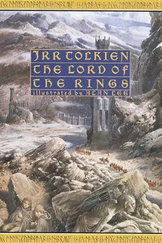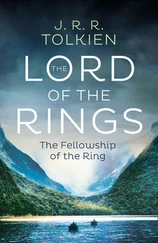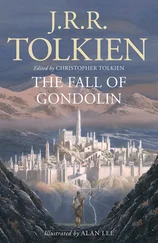J Tolkien - The Silmarillon
Здесь есть возможность читать онлайн «J Tolkien - The Silmarillon» весь текст электронной книги совершенно бесплатно (целиком полную версию без сокращений). В некоторых случаях можно слушать аудио, скачать через торрент в формате fb2 и присутствует краткое содержание. Год выпуска: 1985, ISBN: 1985, Издательство: Del Rey, Жанр: Эпическая фантастика, на английском языке. Описание произведения, (предисловие) а так же отзывы посетителей доступны на портале библиотеки ЛибКат.
- Название:The Silmarillon
- Автор:
- Издательство:Del Rey
- Жанр:
- Год:1985
- ISBN:0345325818
- Рейтинг книги:5 / 5. Голосов: 1
-
Избранное:Добавить в избранное
- Отзывы:
-
Ваша оценка:
- 100
- 1
- 2
- 3
- 4
- 5
The Silmarillon: краткое содержание, описание и аннотация
Предлагаем к чтению аннотацию, описание, краткое содержание или предисловие (зависит от того, что написал сам автор книги «The Silmarillon»). Если вы не нашли необходимую информацию о книге — напишите в комментариях, мы постараемся отыскать её.
Those interested in J.R.R. Tolkien's Middle Earth should not be without this grand volume that tells the tragic tale of the struggle for control of the Silmarils, a struggle that would determine the history of the world long before the War of the Ring.
The Silmarillon — читать онлайн бесплатно полную книгу (весь текст) целиком
Ниже представлен текст книги, разбитый по страницам. Система сохранения места последней прочитанной страницы, позволяет с удобством читать онлайн бесплатно книгу «The Silmarillon», без необходимости каждый раз заново искать на чём Вы остановились. Поставьте закладку, и сможете в любой момент перейти на страницу, на которой закончили чтение.
Интервал:
Закладка:
Then the White Council was summoned; and Mithrandir urged them to swift deeds, but Curunir spoke against him, and counselled them to wait yet and to watch. ‘For I believe not,’ said he, ‘that the One will ever be found again in Middle-earth. Into Anduin it fell, and long ago, I deem, it was rolled to the Sea. There it shall lie until the end, when all this world is broken and the deeps are removed.'
Therefore naught was done at that time, though Elrond's heart misgave him, and he said to Mithrandir: 'Nonetheless I forbode that the One will yet be found, and then war will arise again, and in that war this Age will be ended. Indeed in a second darkness it will end, unless some strange chance deliver us that my eyes cannot see.’ 'Many are the strange chances of fee world,’ said Mithrandir, 'and help oft shall come from the hands of the weak when the Wise falter.'
Thus the Wise were troubled, but none as yet perceived that Curunir had turned to dark thoughts and was already a traitor in heart: for he desired that he and no other should find the Great Ring, so that he might wield it himself and order all the world to his will Too long he had studied the ways of. Sauron in hope to defeat him, and now he envied him as a rival rather than hated his works. And he deemed that the Ring, which was Sauron's, would seek for its master as he became manifest once more; but if he were driven out again, then it would lie hid. Therefore he was willing to play with peril and let Sauron be for a time, hoping by his craft to forestall both his friends and the Enemy, when the Ring should appear.
He set a watch upon the Gladden Fields; but soon he discovered that the servants of Dol Guldur were searching all the ways of the River in that region. Then he perceived that Sauron also had learned of the manner of Isildur's end, and he grew afraid and withdrew to Isengard and fortified it; and ever he probed deeper into the lore of the Rings of Power and the art of their forging. But he spoke of none of this to the Council, hoping still that he might be the first to hear news of the Ring. He gathered a great host of spies, and many of these were birds; for Radagast lent him his aid, divining naught of his treachery, and deeming that this was but part of the watch upon the Enemy.
But ever the shadow in Mirkwood grew deeper, and to Dol Guldur evil things repaired out of all the dark places of the world; and they were united again under one will, and their malice was directed against the Elves and the survivors of Numenor. Therefore at last the Council was again summoned and the lore of the Rings was much debated; but Mithrandir spoke to the Council, saying: ‘It is not needed that the Ring should be found, for while it abides on earth and is not unmade, still the power that it holds will live, and Sauron will grow and have hope. The might of the Elves and the Elf-friends is less now than of old. Soon he will be too strong for you, even without the Great Ring; for he rules the Nine, and of the Seven he has recovered three. We must strike.'
To this Curunir now assented, desiring that Sauron should be thrust from Dol Guldur, which was nigh to the River, and should have leisure to search there no longer. Therefore, for the last time, he aided the Council, and they put forth their strength; and they assailed Dol Guldur, and drove Sauron from his hold, and Mirkwood for a brief while was made wholesome again.
But their stroke was too late. For the Dark Lord had foreseen it, and he had long prepared all his movements; and the Ulairi, his Nine Servants, had gone before him to make ready for his coming. Therefore his flight was but a feint, and he soon returned, and ere the Wise could prevent him he re-entered his kingdom in Mordor and reared once again the dark towers of Barad-dur. And in that year the White Council met for the last time, and Curunir withdrew to Isengard, and took counsel with none save himself.
Orcs were mustering, and far to the east and the south the wild peoples were arming. Then in the midst of gathering fear and the rumour of war the foreboding of Elrond was proved true, and the One Ring was indeed found again, by a chance more strange than even Mithrandir had foreseen; and it was hidden from Curunir and from Sauron.
For it had been taken from Anduin long ere they sought for it, being found by one of the small fisher-folk that dwelt by the River, ere the Kings failed in Condor; and by its finder it was brought beyond search into dark hiding under the roots of the mountains. There it dwelt, until even in the year of the assault upon Dol Guldur it was found again, by a wayfarer, fleeing into the depths of the earth from the pursuit of the Orcs, and passed into a far distant country, even to the land of the Periannath, the Little People, the Halflings, who dwelt in the west of Eriador. And ere that day they had been held of small account by Elves and by Men, and neither Sauron nor any of the Wise save Mithrandir had in all their counsels given thought to them.
Now by fortune and his vigilance Mithrandir first learned of the Ring, ere Sauron had news of it; yet he was dismayed and in doubt. For too great was the evil power of this thing for any of the Wise to wield, unless like Curunir he wished himself to become a tyrant and a dark lord in his turn; but neither could it be concealed from Sauron for ever, nor could it be unmade by the craft of the Elves. Therefore with the help of the Dunedain of the North Mithrandir set a watch upon the land of the Periannath and bided his time. But Sauron had many ears, and soon he heard rumour of the One Ring, which above all things he desired, and he sent forth the Nazgul to take it. Then war was kindled, and in battle with Sauron the Third Age ended even as it had begun.
But those who saw the things that were done in that time, deeds of valour and wonder, have elsewhere told the tale of the War of the Ring, and how it ended both in victory unlocked for and in sorrow long foreseen. Here let it be said that in those days the Heir of Isildur arose in the North, and he took the shards of the sword of Elendil, and in Imladris they were reforged; and he went then to war, a great captain of Men. He was Aragorn son of Arathorn, the nine and thirtieth heir in the right line from Isildur, and yet more like to Elendil than any before him. Battle there was in Rohan, and Curunir the traitor was thrown down and Isengard broken; and before the City of Gondor a great field was fought, and the Lord of Morgul, Captain of Sauron, there passed into darkness; and the Heir of Isildur led the host of the West to the Black Gates of Mordor.
In that last battle were Mithrandir, and the sons of Elrond, and the King of Rohan, and lords of Gondor, and the Heir of Isildur with the Dunedain of the North. There at the last they looked upon death and defeat, and all their valour was in vain; for Sauron was too strong. Yet in that hour was put to the proof that which Mithrandir had spoken, and help came from the hands of the weak when the Wise faltered. For, as many songs have since sung, it was the Periannath, the Little People, dwellers in hillsides and meadows, that brought them deliverance.
For Frodo the Halfling, it is said, at the bidding of Mithrandir took on himself the burden, and alone with his servant he passed through peril and darkness and came at last in Sauron's despite even to Mount Doom; and there into the Fire where it was wrought he cast the Great Ring of Power, and so at last it was unmade and its evil consumed.
Then Sauron failed, and he was utterly vanquished and passed away like a shadow of malice; and the towers of Barad-dur crumbled in ruin, and at the rumour of their fall many lands trembled. Thus peace came again, and a new Spring opened on earth; and the Heir of Isildur was crowned King of Gondor and Arnor, and the might of the Dunedain was lifted up and their glory renewed. In the courts of Minas Anor the White Tree flowered again, for a seedling was found by Mithrandir in the snows of Mindolluin that rose tall and white above the City of Gondor; and while it still grew there the Elder Days were not wholly forgotten in the hearts of the Kings.
Читать дальшеИнтервал:
Закладка:
Похожие книги на «The Silmarillon»
Представляем Вашему вниманию похожие книги на «The Silmarillon» списком для выбора. Мы отобрали схожую по названию и смыслу литературу в надежде предоставить читателям больше вариантов отыскать новые, интересные, ещё непрочитанные произведения.
Обсуждение, отзывы о книге «The Silmarillon» и просто собственные мнения читателей. Оставьте ваши комментарии, напишите, что Вы думаете о произведении, его смысле или главных героях. Укажите что конкретно понравилось, а что нет, и почему Вы так считаете.












